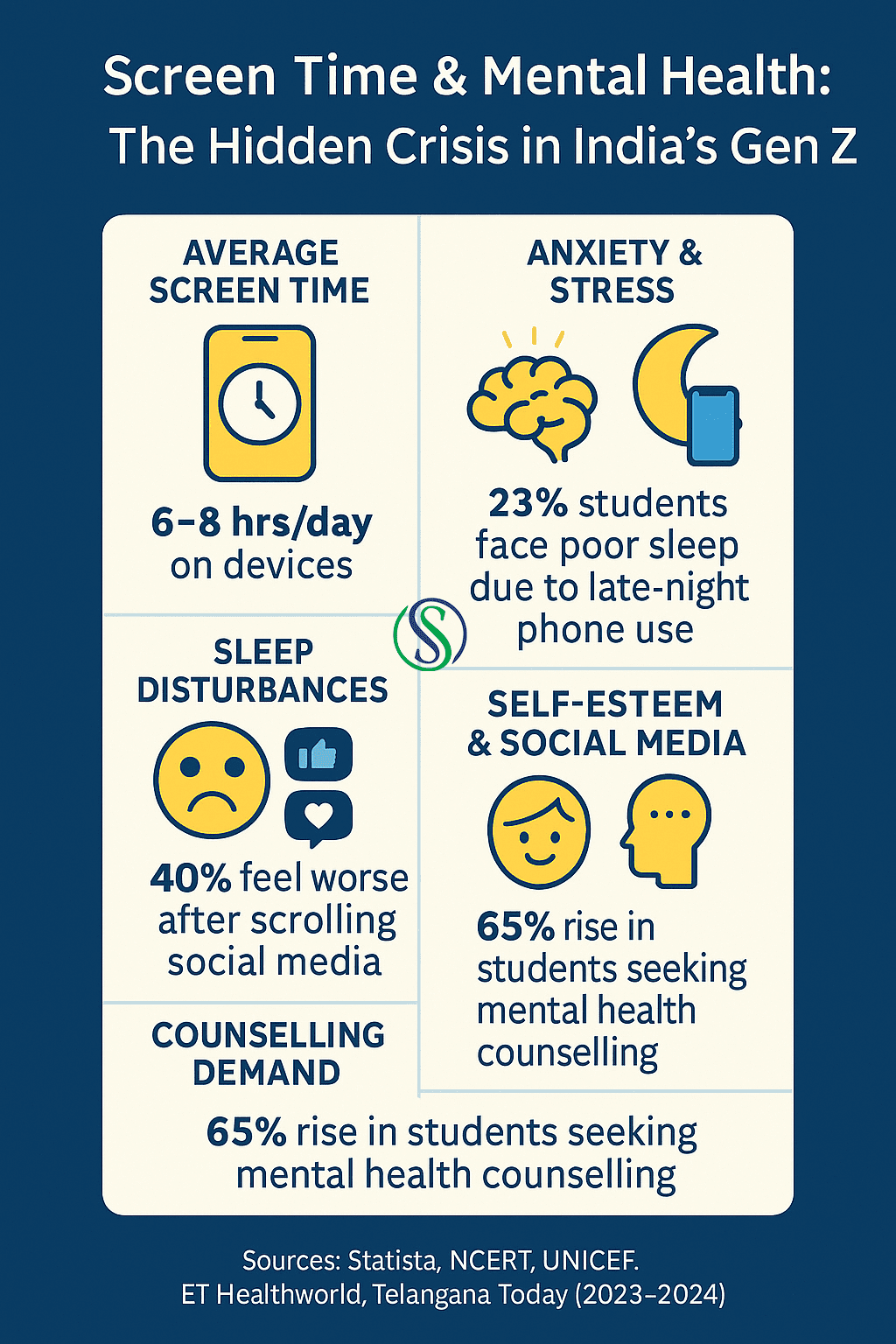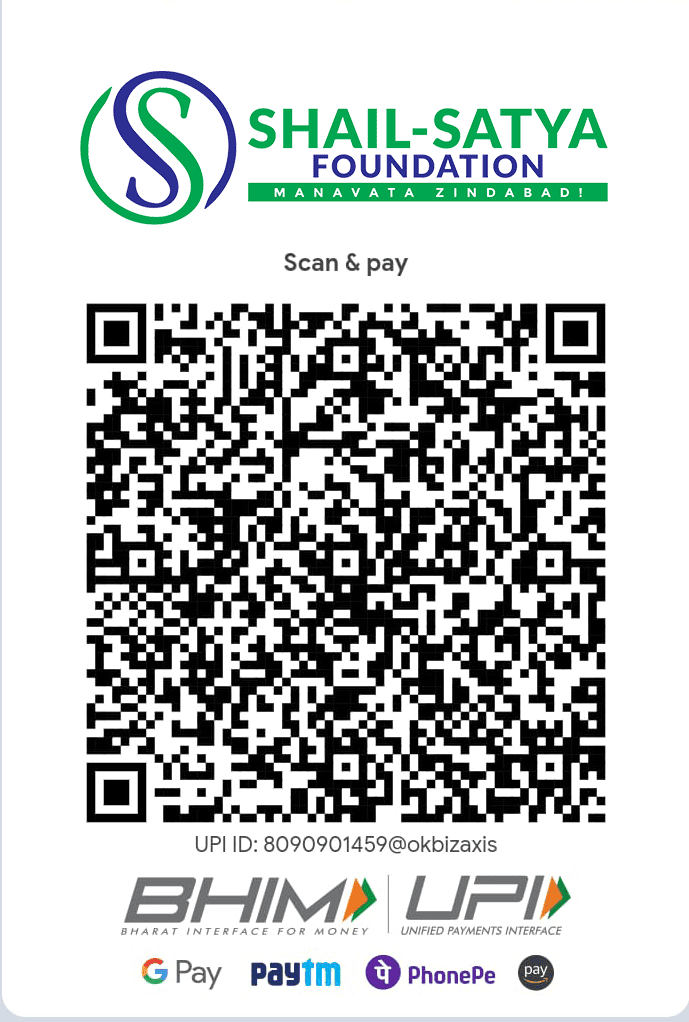Screen Time & Mental Health: The Hidden Crisis in India’s Gen Z
Screen time and mental health India Gen Z is a growing concern today. With smartphones, social media, and online classes dominating daily routines, young Indians spend more than 6–8 hours a day on screens. This silent crisis is deeply affecting their mental health, sleep, productivity, and self-esteem.
At Shail-Satya Foundation, an education NGO in India recognized among the best NGOs in India, we promote digital wellbeing for youth and raise awareness about how screen time affects mental health across the country.
Screen Time and Mental Health India Gen Z: Understanding the Growing Crisis
A 2024 Indian study found that adolescents spend an average of 3.8 hours daily on screens, with 83% of students exceeding the recommended limit of 2 hours per day.
Source: Prevalence of Excess Screen Time Study (PMC, 2024)
- Indian teens average 6–8 hours/day on digital devices.
- Social media encourages constant comparison and instant gratification.
- Online education during the pandemic increased digital dependency.
Mental Health Impact of Screen Time on India’s Gen Z Students
UNICEF India highlights that digital overload and social comparison contribute to rising levels of
anxiety, loneliness, and mood swings among adolescents.
Source: UNICEF India – Mental Well-being of Young People
High screen exposure is linked to multiple emotional and psychological challenges:
- Anxiety & Depression: Social media triggers self-doubt and low mood.
- Sleep Problems: Blue light delays sleep cycles, causing insomnia.According to ET Healthworld, nearly 68% of urban students report sleep disruption from late-night smartphone use.
- Concentration Issues: App-switching reduces focus and memory retention.
- Isolation: Virtual connections replace real relationships, impacting resilience.
Infographic: Key Statistics on Screen Time and Mental Health (2023–2025)

Infographic: The impact of screen time on Gen Z mental health in India (2023–2025). Sources: UNICEF India, PMC Studies, ET Healthworld, Telangana Today.
Warning Signs of Mental Health Issues in India’s Gen Z
- Declining academic performance
- Withdrawal from family/social life
- Persistent fatigue or irritability
- Obsession with checking devices
Healthy Digital Habits to Improve Mental Health in India’s Youth
Small, consistent changes can make a big difference:
- Set screen-time limits: Use built-in app timers.
- Digital detox hours: Avoid devices at meals and before bedtime.
- Encourage offline hobbies: Sports, art, music, and reading.
- Mindful usage: Use technology for learning, not endless scrolling.
How Shail-Satya Foundation Helps India’s Gen Z Balance Screen Time and Mental Health
As an education and healthcare NGO in India, Shail-Satya Foundation conducts school and college workshops on digital wellbeing and mental health awareness. Our programs train students, teachers, and parents on stress management, mindfulness, and emotional resilience. This strengthens India’s youth and aligns with our vision as the best NGO in India dedicated to holistic development.
Conclusion: Building a Healthier Digital Future for Gen Z in India
The connection between screen time and mental health in India’s Gen Z is an urgent issue. At Shail-Satya Foundation, an education NGO in India recognized as one of the best NGOs in India, we continue to empower youth through education, awareness, and emotional resilience programs.
Together, we can shape a healthier, more mindful digital generation.
📖 Read more in Health: Academic Pressure and Anxiety: The Silent Battle of Indian Students




Leave a Reply
You must be logged in to post a comment.